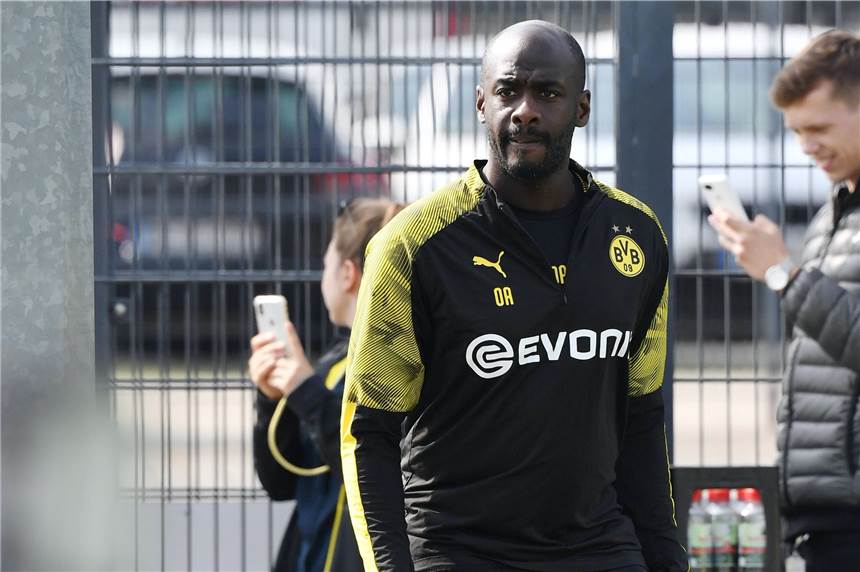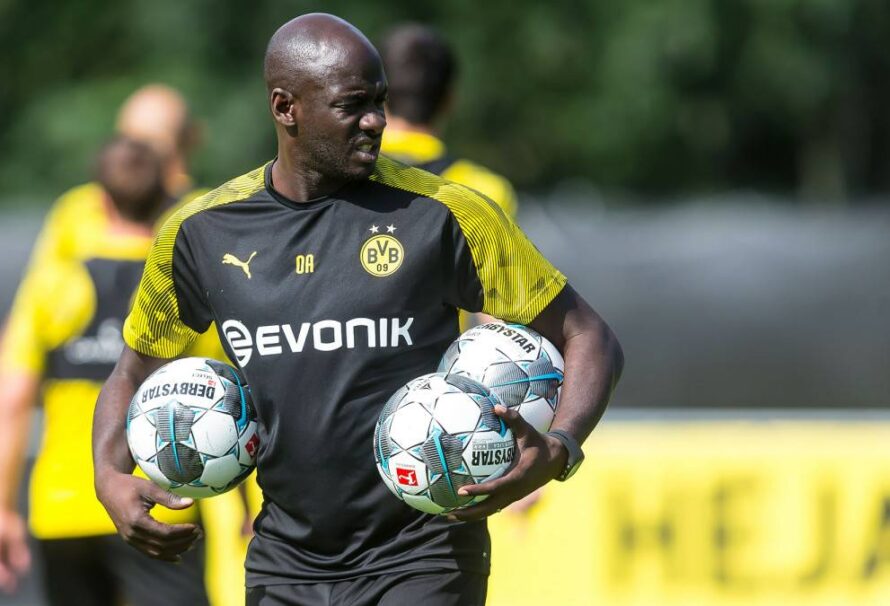
Many footballers are unsure of their calling once they hang up their boots and Otto Addo was no different.
The German-born Ghanaian international had enjoyed a stellar career in Germany, the highlight coming in the 2001-02 season when he won the Bundesliga title with Borussia Dortmund.
Addo, who represented Ghana at the 2006 World Cup, eventually finished his career at his hometown club of Hamburg and it was there that he began to get a sense of what life after playing might be.
After signing in 2007, Addo alternated between playing for the first team and second team, where he began to coach and mentor the club’s young talents.
Many footballers are unsure of their calling once they hang up their boots and Otto Addo was no different.
The German-born Ghanaian international had enjoyed a stellar career in Germany, the highlight coming in the 2001-02 season when he won the Bundesliga title with Borussia Dortmund.
Addo, who represented Ghana at the 2006 World Cup, eventually finished his career at his hometown club of Hamburg and it was there that he began to get a sense of what life after playing might be.
After signing in 2007, Addo alternated between playing for the first team and second team, where he began to coach and mentor the club’s young talents.

It was a role he was enjoying, until his troublesome knee — which he sustained three serious injuries to throughout his career — eventually forced him to retire.
“I started thinking: ‘Okay, what can I do now?’” Addo tells CNN from Borussia Dortmund’s training center, where he is now the assistant coach of the first team.
“So I jumped into scouting for about two or three months to see if I would like it, because I was sure that I wanted to do something with football — about this I was very, very sure — but I didn’t know which section to go.
The scouting was okay,” he recalls somewhat unenthusiastically. “You know, traveling alone and watching games alone was quite different and I’m a guy who likes to be around people.
“Then the opportunity came to join the under-19s [at Hamburg] and they asked me if I could join as an assistant and if I could help.
“I stepped in and I liked it. I like to work with young players and with people. It was a good experience and I said: ‘OK … I want to do this for the rest of my life.”
Addo soon became head coach of Hamburg’s under-19s, but was lured to Denmark by FC Nordsjaelland to become a coach for an exciting new project.
The club is owned by Ghana’s Right to Dream Academy and provides arguably one of the best routes into European football for some of Africa’s biggest talents.
With his understanding of both German and Ghanaian culture, Addo says he was largely tasked with helping the youngsters get acclimatized to their new home.
“It was perfect for me,” he says.
‘Just a number’
Football can be a tough profession and this can be doubly true for young players, in particular those coming from abroad.
Throughout his career, Addo had sometimes noticed that these youngsters could be treated like “just a number” when making the step up from the youth sides to the first team.
“Every time a young player went up, he was kind of left and felt alone,” Addo recalls. “They came to the first team and they were just a number, like number 23 or 24. No one was talking to them. It was a whole different experience.”
It was during his time at FC Nordsjaelland that Addo began to understand how he could best help the next generation of footballers, and he began to carve out a new role for himself.
On top of the coaching and on-pitch analysis he provided, Addo also became a mentor for the club’s youth players and provided support in their personal lives.

